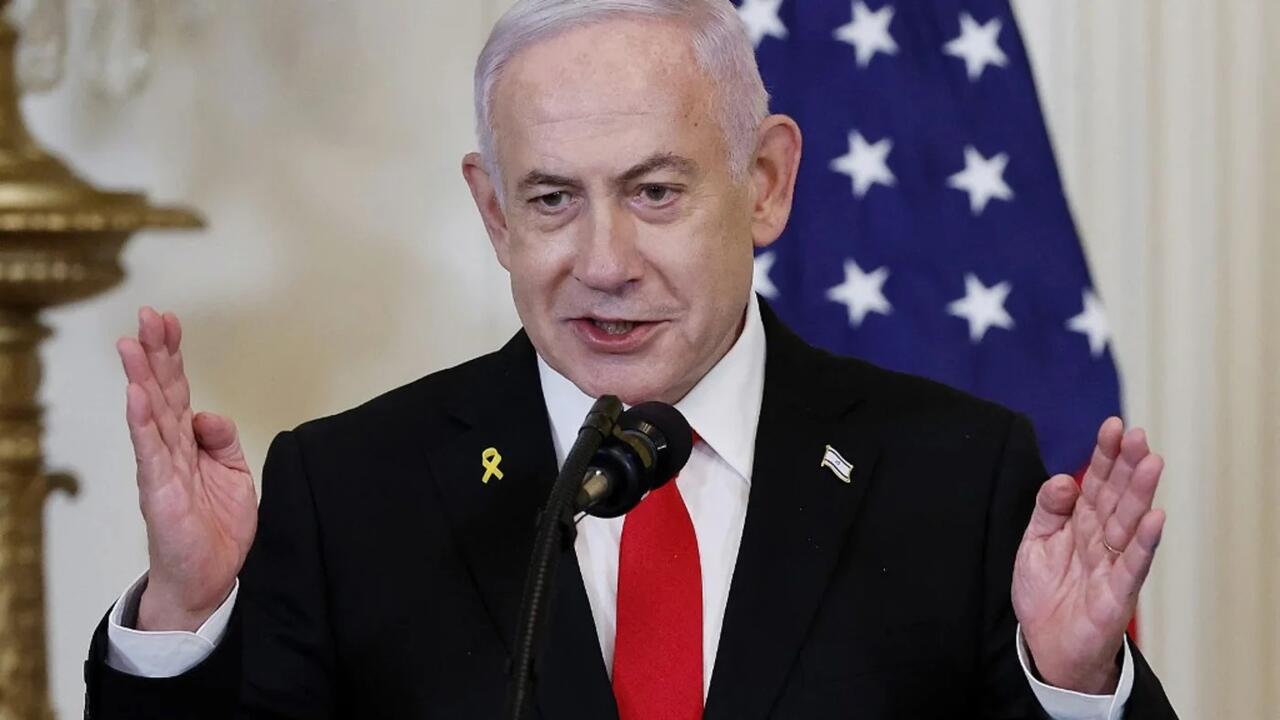Did Netanyahu Just Turn His Back on American Jews?
During his extended Washington visit, Netanyahu avoided meeting Jewish leaders—a break from tradition that raises questions about his political motives.

During his recent visit to Washington, Israeli Prime Minister Benjamin Netanyahu notably avoided two key gestures—ones that were long considered essential components of an Israeli leader’s diplomatic itinerary. As journalist Shlomo Shamir pointed out in his Maariv article, Netanyahu did not call former President Joe Biden to thank him for the unprecedented aid package provided to Israel following the October 7 attack, nor did he meet with leaders of the American Jewish community—a longstanding tradition for Israeli prime ministers.
Following the October 7 Hamas attack, the Biden administration swiftly approved a $14 billion emergency aid package for Israel, which has already been disbursed to the necessary defense and civilian sectors. Despite this significant show of support, Netanyahu chose not to acknowledge Biden's efforts with even a discreet phone call.
According to Shamir, this was no accident: Netanyahu is deeply wary of former President Donald Trump and was likely fearful of his reaction.
Sources close to Netanyahu suggest that any action perceived as conciliatory toward Biden could have provoked Trump’s ire—a political risk Netanyahu was unwilling to take.
As Shamir put it, for Netanyahu, upsetting Trump is considered an unforgivable sin.
Another glaring omission from Netanyahu’s itinerary was a meeting with leaders of the American Jewish community. Historically, these meetings were a staple of Israeli prime ministers' visits to the U.S., providing an opportunity to strengthen ties with Jewish leaders, rabbis from various denominations, and influential figures within the community.
The last time Netanyahu met with American Jewish leaders was in September, during his visit to New York for the UN General Assembly.
According to some attendees, the meeting was a disaster—so much so that some felt it would have been better if it hadn’t taken place at all.
Why would Netanyahu avoid engaging with the Jewish community? As Shamir explains, the vast majority of American Jews—especially in cities like New York and Los Angeles—are liberal and overwhelmingly opposed to Trump.
Given Netanyahu’s political alignment and strategic priorities, he likely saw no political advantage in fostering dialogue with a community that does not align with his key ally, Trump.
Supporters of Netanyahu have labeled his Washington trip as "historic", but Shamir challenges this narrative. He argues that previous Israeli prime ministers have made far more consequential visits to the U.S., ones that produced tangible diplomatic and security achievements.
The most notable headline from Netanyahu’s visit was not his own, but rather Trump’s bold declaration regarding Gaza.
The former president publicly suggested that the U.S. should take control of Gaza after the war, claiming that Israel would transfer governance of the strip to the U.S. once hostilities end.
Netanyahu’s trip ultimately reinforced Israel’s reliance on the U.S., particularly on Trump’s political goodwill.
The visit solidified a new reality in which Netanyahu will struggle to make significant policy decisions without first consulting the White House.
Despite Netanyahu’s warm relationship with Trump, his failure to acknowledge Biden’s assistance and his deliberate distancing from the Jewish community raise important questions about his long-term diplomatic strategy.